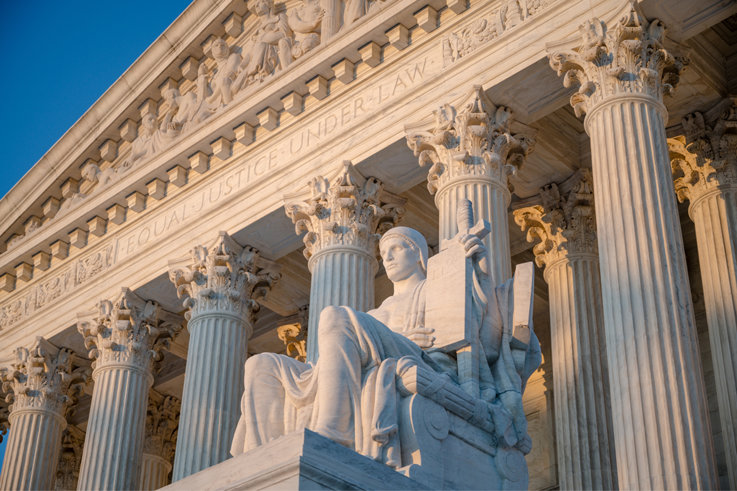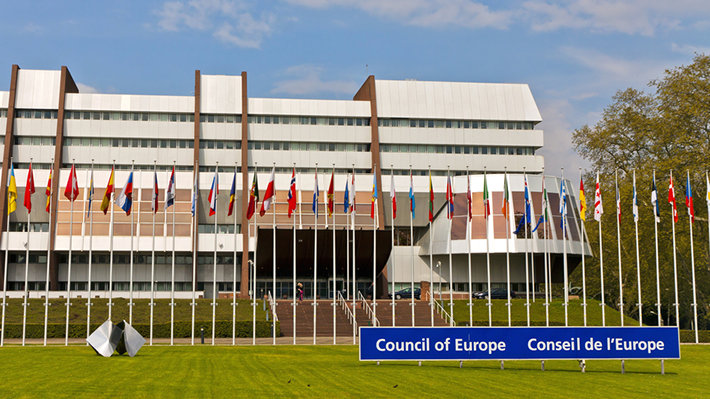
-
HOME
-
WHAT IS STANDOur Mission Our Values Our Help Contact
-
WHAT WE FIGHT FORReligious Freedom Religious Literacy Equality & Human Rights Inclusion & Respect Free Speech Responsible Journalism Corporate Accountability
-
RESOURCESExpert Studies Landmark Decisions White Papers FAQs David Miscavige Religious Freedom Resource Center Freedom of Religion & Human Rights Topic Index Priest-Penitent Privilege Islamophobia
-
HATE MONITORBiased Media Propagandists Hatemongers False Experts Hate Monitor Blog
-
NEWSROOMNews Media Watch Videos Blog
-
TAKE ACTIONCombat Hate & Discrimination Champion Freedom of Religion Demand Accountability
“Textbook Discrimination”: Supreme Court Rebukes State, Grants Tax Exemption to Catholic Charities
In a unanimous decision, the United States Supreme Court has found that the Catholic Charities Bureau of Superior, Wisconsin, qualifies for exemption from state unemployment taxes, overturning a state supreme court decision ordering Catholic Charities to pay the tax from which most church organizations are exempt.

The Catholic Charities Bureau’s victory affirms the principle that all religions must be treated equally and that a government agency may not judge the doctrines of one religion as acceptable while denying the religious nature of another.
The Supreme Court has made it easier for churches everywhere to serve their communities in accordance with their own beliefs.
The Catholic Charities Bureau is an organization that administers a number of programs for the poor and needy under the guidance of the Diocese of Superior. According to the tenets of the Catholic faith, the Bureau cannot include proselytization as part of its activities and must provide its help freely, regardless of the beliefs of the recipients.
The controversy arose and reached the Supreme Court because the Wisconsin government agency administering the unemployment insurance program denied the Bureau’s claim for exemption on the grounds that it was not operated for a religious purpose since it didn’t proselytize or limit itself to only providing services to Catholics. In other words, following the Church’s own teachings supposedly resulted in the program failing to serve a religious purpose. The case moved through the Wisconsin state legal system and the Wisconsin Supreme Court ultimately upheld the denial, leaving Catholic Charities no other option than the US Supreme Court.
The opinion of the US Supreme Court, written by Justice Sotomayor, described the exemption denial as “textbook denominational discrimination,” stating that Wisconsin’s action “grants a denominational preference by explicitly differentiating between religions based on theological practices.” She pointed out that for a secular government agency to make its own evaluation of how a church defines or should define its religious purposes is discriminatory against religions whose members have made different choices that align with their own understanding of their calling.
By re-affirming the principle that governments may not judge the theological correctness of a religion’s beliefs and practices when determining exemption, the Supreme Court has made it easier for churches everywhere to serve their communities in accordance with their own beliefs.
“We’re grateful the court unanimously recognized that improving the human condition by serving the poor is part of our religious exercise and has allowed us to continue serving those in need throughout our diocese and beyond,” said Superior Diocese Bishop James Powers, who oversees the Bureau’s activities.
Refreshingly, in this era of bitterly divided government, the Supreme Court justices were all of one mind. As Justice Sotomayor stated in conclusion, “It is fundamental to our constitutional order that the government maintain ‘neutrality between religion and religion.’ … There may be hard calls to make in policing that rule, but this is not one.”
STAND League is the leading global coalition exposing bigotry and championing religious freedom worldwide. Through education, advocacy and partnership, STAND promotes religious literacy, demands corporate accountability, advances honest journalism and safeguards equality, justice and human rights for all.





